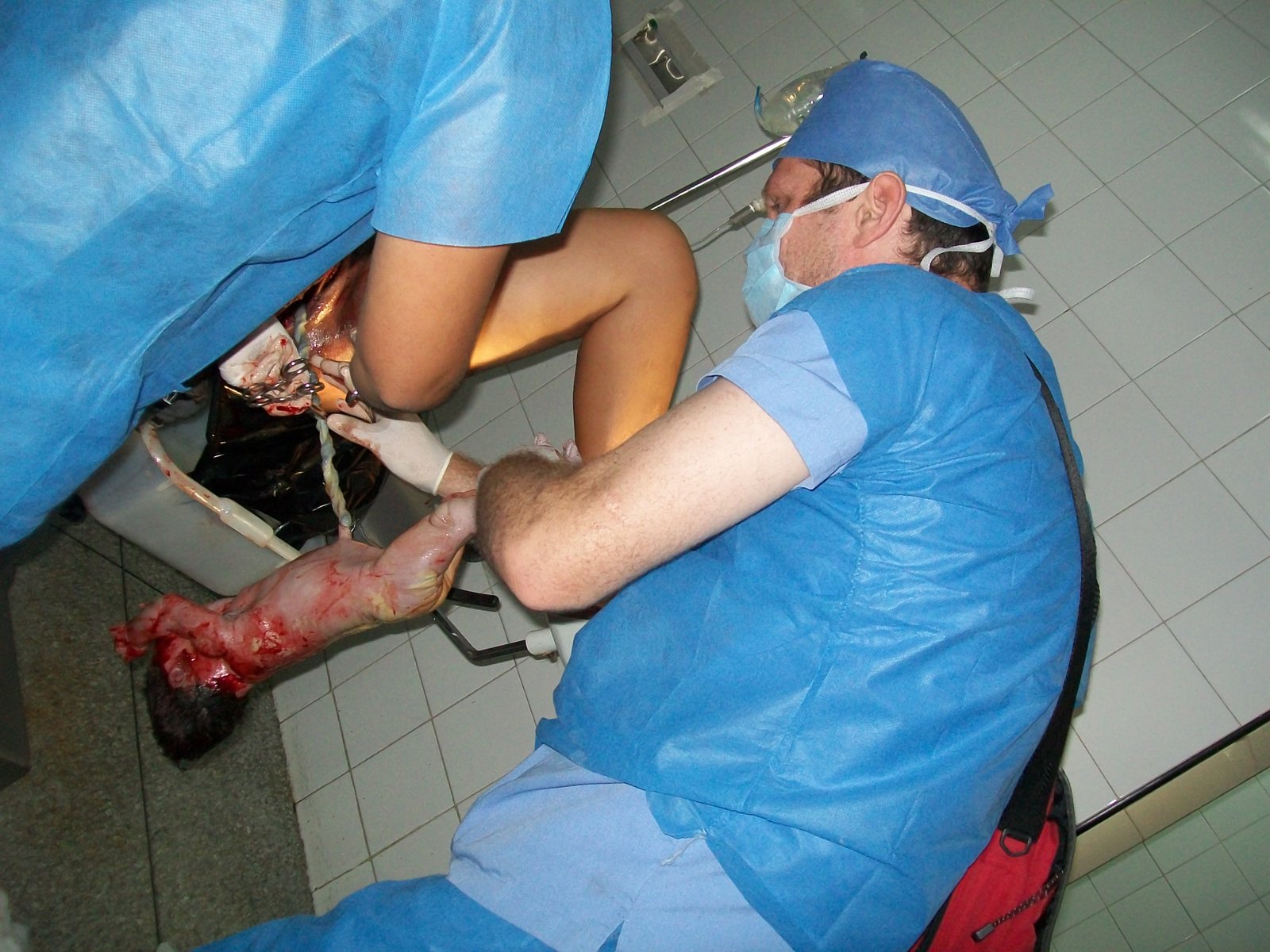Motherhood is a beautiful journey filled with unforgettable moments and indescribable joy. However, amidst the late-night cuddles and sweet lullabies lies a hidden battle that many new moms endure: postpartum constipation. It’s a formidable enemy that seems to rear its ugly head just when you think you’ve conquered all the challenges that come with welcoming a little bundle of joy into your life. But fear not, for nature has bestowed upon us a bountiful array of foods that can help combat this discomfort. From fiber-packed fruits to gut-soothing soups, join us on a culinary adventure as we explore the most effective foods to alleviate postpartum constipation and restore balance to your body. So put on your apron and get ready to whip up some delicious remedies that will have your digestive system singing with gratitude!
Table of Contents
- Fiber-rich Foods to Promote Healthy Digestion after Childbirth
- Hydration: Key to Relieving Postpartum Constipation
- Powerful Fruits and Vegetables to Ease Bowel Movements
- Supplementing with Natural Laxatives: Supporting Post-Delivery Digestion
- Physical Activity and Postpartum Constipation: The Perfect Pair
- Q&A
- To Wrap It Up

Fiber-rich Foods to Promote Healthy Digestion after Childbirth
Fiber-rich foods play an essential role in promoting healthy digestion after childbirth. These foods are not only beneficial for new mothers but also help in maintaining overall well-being. Incorporating fiber-rich foods into your post-pregnancy diet can aid in preventing constipation, promoting regular bowel movements, and providing the necessary nutrients to support your recovery.
To boost your digestion, consider including the following fiber-rich foods in your diet:
- Legumes: Legumes such as lentils, chickpeas, and black beans are excellent sources of fiber. They not only provide essential nutrients but also help in regulating digestion.
- Fruits: Fresh fruits like apples, oranges, and berries are rich in fiber and can be easily incorporated into your daily routine.
- Vegetables: Leafy greens, broccoli, carrots, and sweet potatoes are packed with fiber. Including a variety of vegetables ensures a well-rounded intake of essential nutrients and promotes a healthy digestive system.
- Whole grains: Opt for whole grain bread, brown rice, oats, and quinoa to add significant amounts of fiber to your diet. These grains can help prevent constipation while providing sustained energy levels.
Remember to gradually increase your fiber intake and drink plenty of water to help with digestion. Aim to consume a variety of fiber-rich foods to ensure you are getting a balance of nutrients for your recovery and overall health.

Hydration: Key to Relieving Postpartum Constipation
Dealing with constipation after giving birth can be uncomfortable and frustrating. However, one simple solution to relieve postpartum constipation is often overlooked: hydration.
When your body is dehydrated, it can lead to harder stools and difficulty passing them. Drinking an adequate amount of water helps soften the stool, making it easier to eliminate waste. Aim to drink at least eight glasses of water a day, or more if you’re breastfeeding.
Additionally, incorporating hydrating foods into your diet can also contribute to relieving constipation. Some hydrating foods include:
- Watermelon: This delicious fruit is made up of about 92% water and contains fiber, which can promote regular bowel movements.
- Cucumbers: With a high water content and a mild, refreshing taste, cucumbers are a great addition to salads or as a healthy snack.
- Leafy greens: Vegetables like spinach and lettuce contain fiber and water, providing a double benefit for easing constipation.
Incorporating these hydrating foods into your diet, along with staying well-hydrated, can make a significant difference in alleviating postpartum constipation. Remember, hydration is key to maintaining regular bowel movements and overall digestive health.

Powerful Fruits and Vegetables to Ease Bowel Movements
In our fast-paced lives, maintaining a healthy digestive system is crucial. Fortunately, nature has provided us with an abundance of fruits and vegetables that can help give our sluggish bowels a gentle nudge. These power-packed foods not only promote better digestion but also provide essential nutrients that support overall well-being.
1. Prunes: Prunes, also known as dried plums, are a natural way to combat constipation. They are high in fiber and contain sorbitol, which acts as a natural laxative. Enjoy them as a delicious snack or add them to your morning cereal for added convenience.
2. Spinach: Popeye knew the secret! Spinach is not only rich in iron but also contains fiber, magnesium, and several essential vitamins. The fiber in spinach helps regulate bowel movements, while magnesium aids muscle contractions in the intestines, promoting smooth digestion.
3. Kiwi: This vibrant green fruit with its sweet-tart taste is a treasure trove of digestive benefits. Kiwis are packed with fiber, vitamin C, and enzymes that enhance digestion. The natural fibers in kiwi help soften stools and promote regular bowel movements, while the enzymes assist in breaking down food more efficiently.
Explore these powerful fruits and vegetables to make your digestive system a little happier. Remember to drink plenty of water and include a variety of fruits and vegetables in your diet for optimal digestive health.
Supplementing with Natural Laxatives: Supporting Post-Delivery Digestion
Welcoming a new bundle of joy into the world is an incredible experience that brings immense joy and fulfillment. However, the journey of pregnancy and childbirth can take a toll on a woman’s body, leaving her to face some discomfort in the days following delivery. One common challenge that new mothers often encounter is digestive issues. Fortunately, there are several natural laxatives that can help support post-delivery digestion, allowing mothers to focus on bonding with their little ones.
Stay Regular: Ensuring regular bowel movements post-delivery is crucial in promoting overall well-being. Incorporating natural laxatives into your diet can help relieve constipation, minimize bloating, and alleviate any discomfort caused by sluggish digestion. Here are a few gentle and nourishing options:
- Prunes: Packed with fiber and natural sugars, prunes are known for their ability to promote regularity. Enjoy a handful of these delicious dried fruits, or try drinking prune juice for a quick and effective boost to your digestive system.
- Chia Seeds: These tiny powerhouses are rich in dietary fiber and omega-3 fatty acids. Add a spoonful of chia seeds to your morning yogurt or blend them into a smoothie to support gut health.
- Ginger: Not only does ginger add a flavorful punch to your meals, but it’s also been used for centuries to aid digestion. Whether steeped in a cup of hot tea or grated into your favorite dishes, this versatile rhizome can help ease any postpartum stomach woes.
Listen to Your Body: While natural laxatives can provide relief, it’s important to listen to your body’s signals and consult with your healthcare provider. Additionally, staying hydrated, eating a balanced diet, and practicing gentle exercises, like walking, can also contribute to a healthy digestive system. Remember, this is a time of recovery and adjustment, so be patient and kind to yourself as you navigate the beautiful post-delivery phase.
Physical Activity and Postpartum Constipation: The Perfect Pair
Physical activity has numerous benefits for new mothers, and one surprising advantage is its ability to combat postpartum constipation. While it may not be a topic commonly discussed, postpartum constipation is a common discomfort that many women experience after giving birth. Fortunately, engaging in regular physical activity can help alleviate this issue and promote overall well-being.
When it comes to combating postpartum constipation, incorporating exercises that target the abdominal muscles and stimulate bowel movements can be especially beneficial. Some recommended exercises include:
- Pelvic Tilts: This simple movement involves lying on your back with bent knees and gently rocking your pelvis back and forth, engaging the abdominal muscles. Repeat this motion for a few minutes each day to encourage bowel movement.
- Walking: A brisk walk not only helps with weight loss but also stimulates the digestive system, prompting healthy bowel movements. Make it a daily habit to take strolls around your neighborhood or in a nearby park.
- Yoga: Certain yoga poses focus on stretching and strengthening the abdominal area, which can help alleviate constipation. Poses like the Child’s Pose, Happy Baby Pose, and the Wind-Relieving Pose are particularly beneficial.
Remember to consult with your healthcare provider before starting any new exercise regimen, especially if you have recently given birth. Additionally, staying well-hydrated, maintaining a fiber-rich diet, and practicing relaxation techniques can further aid in combating postpartum constipation. By incorporating physical activity into your routine and making small lifestyle adjustments, you can conquer this common discomfort and enjoy a smoother postpartum journey.
Q&A
What causes postpartum constipation?
Postpartum constipation is often caused by hormonal changes and the physical stress of childbirth. Additionally, pain medication, dehydration, and lack of physical activity can also contribute to this discomfort.
How can I relieve postpartum constipation?
Incorporating high-fiber foods into your diet, such as fruits, vegetables, and whole grains, can help soften stools and promote regular bowel movements. It is also crucial to stay well-hydrated, engage in gentle exercise, and consider stool softeners or fiber supplements as recommended by your healthcare provider.
What are some of the best foods to combat postpartum constipation?
Fruits like prunes, kiwi, and berries are excellent choices due to their natural laxative properties. Adding fiber-rich vegetables like broccoli, spinach, and Brussels sprouts can also aid in relieving constipation. Additionally, whole grains such as quinoa and whole wheat bread are beneficial for maintaining regularity.
Can consuming yogurt improve postpartum constipation?
Yes, yogurt containing live bacteria cultures can help regulate bowel movements and relieve constipation. Probiotics in yogurt promote healthy digestion and contribute to gut health, making it a beneficial addition to your postpartum diet.
Are there any other food choices that can help with postpartum constipation?
Yes, drinking warm liquids like herbal teas or warm water can facilitate bowel movements. Including healthy fats from sources like avocados, walnuts, and olive oil in your diet may also help lubricate the intestines, making stool passage easier.
What foods should be avoided to prevent exacerbating postpartum constipation?
Foods low in fiber, such as processed snacks, white bread, and sugary treats, should be consumed in moderation as they can worsen constipation. Caffeinated beverages and carbonated drinks may also contribute to dehydration, making it important to limit their consumption.
Are there any precautions to consider when adding high-fiber foods to my diet?
When incorporating high-fiber foods, it is crucial to do so gradually to allow your digestive system to adjust. Sudden excessive intake of fiber can lead to bloating and gas. It’s also essential to drink plenty of water to help the fiber move through your digestive tract.
To Wrap It Up
As we conclude our exploration into the realm of gentle digestion and postpartum rejuvenation, we hope to have shed light on the nourishing allies that nature has gracefully bestowed upon us. In your journey towards optimizing wellbeing after bringing a tiny miracle into this world, remember that your body deserves nothing but the utmost care and kindness.
Embrace the power of fiber-rich treasures like whole grains, fruits, and vegetables, which can gently coax your intestinal rhythm back to harmony. Savor the delicious embrace of prunes, the humble heroes that have long held the secrets to relief. Don’t forget the hydrating wonders of water, always ready to clarify, cleanse, and restore your body to its vibrant equilibrium.
Incorporate the vital touch of probiotics, as gentle whispers of revitalization that bring peace to your gut and a soothing balm to your soul. Allow them to work their magic, delicately crafting a symphony of wellness within.
In this phase of incredible transformation and discovery, remember that gentle care extends beyond the physical realm. Surround yourself with love, patience, and understandings, for they are the invisible threads that weave a tapestry of comfort and resilience.
As you navigate the unique challenges of postpartum life, let us stand together, rooted in solidarity and strength. Remember that constipation is a passing cloud, and with resilience and perseverance, you will rise above it. Cherish yourself, and allow the healing benefits of nutrition to guide you towards a vibrant postpartum journey, filled with joy, well-being, and nourishment.
Farewell for now, and may your postpartum path be graced with abundant bounty and grace.
As an affiliate, my content may feature links to products I personally use and recommend. By taking action, like subscribing or making a purchase, you’ll be supporting my work and fueling my taco cravings at the same time. Win-win, right?
Want to read more? Check out our Affiliate Disclosure page.